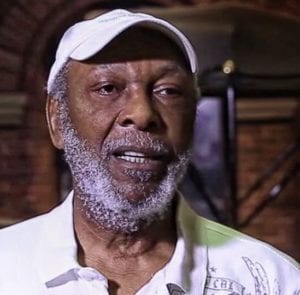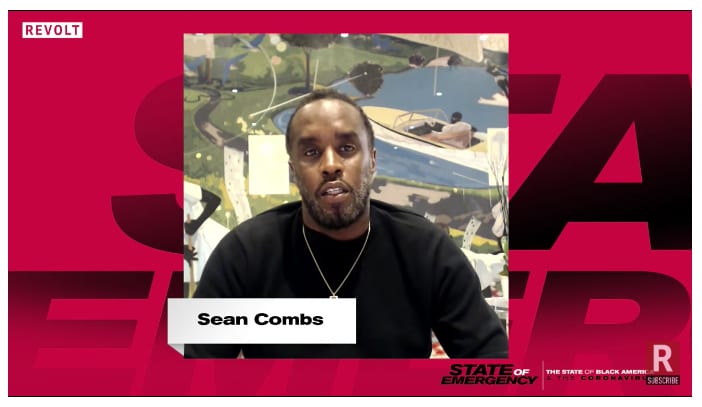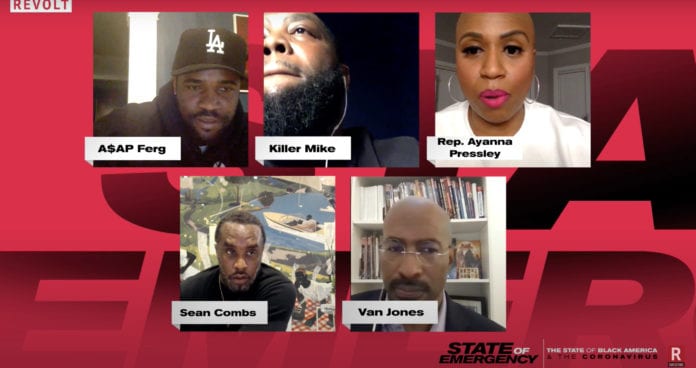by John Burl Smith —
April 9, 2020 will be written about as the return of descendants of American slavery to the ways of their progenitors. It’s the day Sean “Diddy” Combs held the first-ever, virtual town hall meeting for that Diaspora’s children.

The federal government abandoned former slaves entirely in 1876 when it ended Reconstruction. Now in 2020, the gathering brought together by Mr. Combs will try to confront the ravishing pandemic that is deepening the poverty black and brown communities are enduring.
I am reassured, and it is also fitting that the hip-hop generation has enough courage to embrace the role of community leaders. Leadership in black and brown communities long has languished in the gutter of mediocrity for fly-by-night opportunists and shysters to pick up.
The leadership vacuum goes back to the assassination of Dr. Martin Luther King Jr. I was fortunate to be one of the last two people (Charles Cabbage was the other) to sit in a strategy session with Dr. King less than an hour before he was killed. Cabbage and I were co-founders of the Memphis Invaders, a black power activists group.
During our meetings, Dr. King spoke a great deal about the impact of the division that enveloped the Poor People’s Campaign. Infighting and the concern for personal recognition by some within the civil rights community were hampering his efforts.
At the time, most civil rights leaders in Memphis refused to make room and accommodate black power activists. The fight, waged in multiple cities and towns, left leaderless the civil rights and black power movements; the black community has suffered immensely as a result.
The Poor People’s Campaign was launched on December 4, 1967 in Atlanta. King spent the following January and early February on the road, trying to drum up support among civil rights leaders. He found them more united against not allowing black power activists to become part of the leadership in the black community than they were about helping him with the Poor People Campaign.
According to Dr. King, they saw themselves as go-betweens, spokesmen for Negros, as they carried their demands to white people. Translation: the “go-betweens” saw themselves as managing segregation and being the first to receive whatever white people concede to black people. Black power activists believed just the opposite. For us, segregation was another name for slavery. Our goal was to destroy it, not maintain it through accommodation.
The Poor People’s Campaign had thrust the division into the open and to a head by the time Memphis sanitation workers went out on strike on Feb. 13, 1968.
Dr. King told Cabbage and I that civil rights leaders charged him with “betraying the middle class by taking the spotlight off of them and putting it on the poor.” They also insisted, he said, that “even if such a battle with the federal government could be won, there would be no gains for the middle class.”
As the evening wore on, Dr. King said The Invaders were his “last chance” to hold the Poor People’s Campaign together. Civil rights leaders he had counted on were not raising money, providing facilities and food for marchers along the way to Washington D.C. or recruiting volunteers to serve as marshals.” He sounded virtually alone in the effort to help the poor, except for the Revs. Ralph Abernathy, Hosea Williams and James Orange.
Why did he spend the last hours of his life talking to the Invaders?
As I watched Mr. Combs and his colleagues grapple with complete uncertainty and with the many-headed monster of poverty, the answer become clear to me. Dr. King had done the one thing he believed would help future generations – pass on to us what he considered most important.

The Invaders agreed to become marshals for the sanitation workers march scheduled for the next day. Also, the Invaders pledged to support the Poor People’s Campaign.
I bring up the historical division in the fight for equality and justice to provide a real-life reflection. Mr. Combs and his colleagues are entering an arena where they will have to fight like gladiators.
Even before COVID-19, the times we are living through called for a plan to address the myriad problems ravishing black and brown communities. Having just completed the writing of
“The 400th” (1619-2019) From Slavery to Hip Hop,” I have come to know that we are living in a time prime for the descendants of American slavery to educate themselves on realistic ways to address their historic poverty. That plan begins with African Americans, especially the young, learning the what and the why of their enslavement.
The coronavirus pandemic, albeit stunningly deadly, will not kill as many black people as died from 1900 through the 1950s during the angry-white-men-mob-madness epidemic. The reason underlying that period of lynching, banishment and ethnic cleansing continues to fuel the devastating impact of poverty on cities and rural counties with significant populations of black and brown people.
For some, Mr. Combs is considered one of those easy-money hip-hoppers, who made a fortune pedaling gratuitous sex, drugs and misogyny. I say his town-hall has the makings of more than meets the eye and that we must stand with him, lifting him up to show the world we know how to treat benefactors.
Mr. Combs and his colleagues are trying to show the way by giving voice to the needs of the working poor. His “State of Emergency: The State of Black America & Coronavirus” town hall could spark a new day.



